|
Grandma's Bacterial Infections Guide
|
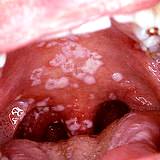 |  | 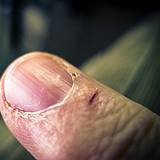 |
You cannot protect yourself completely from bacterial infections, but strengthening your immune system can help prevent them. When you do get sick you can use many plant remedies to inhibit the reproduction of bacteria and promote healing.
Abundant in nature, bacteria are spherical, rod-like or spiral-shaped single-celled organisms. You probably know them best as common infections, such as abscesses, tonsillitis, bronchitis and colds. But not all bacteria make people sick. In fact, the body's natural metabolic processes depend on "good" bacteria, such as the millions of intestinal bacteria that help to break down food.
Bacteria that cause illness are called pathogenic bacteria, and they enter the body through the mouth, the respiratory and urinary tracts and skin injuries.
Sources of infection include other people, food, animals and water. What makes bacteria harmful are the toxins they release when they decay. These toxins will cause the inflammation, fever and headache associated with bacterial infections.
Many natural remedies help to increase resistance to invading pathogens.
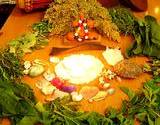 | 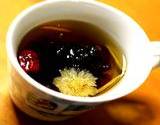 | 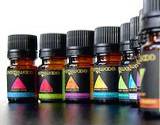 |
Natural Plant-Based Antibiotic
to Fight Bacterial Infections
Many plants contain substances that kill a number of different types of bacteria or inhibit their reproduction. They have few or no side effects, are not harmful to intestinal bacteria and can be taken for prolonged periods. They also do no promote the growth of resistant strains of bacteria.
Tea-tree Oil:
Tea-tree oil's high content of terpenes and eucalyptol is responsible for its antibacterial, antiviral and antifungal effects.
Horseradish and Nasturtium:
The mustard oils in these plants make them good treatments for sinus infections and upper respiratory congestion.
Grapefruit-Seed Extract:
The flavonoids in grapefruit-seed extract give it its antifungal effect. Use it to treat infections in the mouth and throat.
Preventive Treatment with Siberian Ginseng
You can buy a ginseng preparation (Eleutherococcus) at the health-food store; take it as directed for three weeks. Take it before the "cold seasons" in spring and fall to strengthen your immunity. Echinacea will have a similar effect on the body's immunity system .
Garlic Tincture for Fighting Infections:
Garlic is effective against infections of the upper respiratory tract, lungs, and stomach. Take 20 drops of the tincture about an hour before meals three times a day; it will have an antibacterial, detoxifying, and blood-purifying effect. You can also take garlic capsules, or just include liberal quantities of garlic in your diet.
Bearberry Leaves for a Bladder Infection:
The dark green leaves of the bearberry plant (Arctostaphylos uvaurs) are an effective disinfectant for the urinary tract, especially when the urine is highly alkaline. Boil 1 tablespoon of bearberry leaves in 2 cups of water for at least 20 minutes, this is enough time to release the active ingredient arbutin. Add ½ teaspoon of fennel during the last five minutes. Drink three glasses daily. For best results, eat a lot of vegetables during the treatment.
Good Bacteria:
If the "good" bacteria found naturally in the intestines are damaged, pathogens may set up shop. Lactobacillus, a type of bacteria contained in yogurt, can help intestinal bacteria reestablish itself. Look for yogurt containing dextrorotary lactobacilli, which is the most effective.
Aromatherapy
Essential oils containing phenol and thymol may fight bacterial infections. Try treating respiratory tract infections by inhaling the vapors from 2-3 drops of thyme, tea-tree oil or clove oil. Add the oil to hot bathwater. Or, add it to a pot of steaming hot water to create a vaporizer effect: With a towel over the head, inhale the steam.
A Blood-Purifying Tea
The following tea can be a detoxifying treatment for frequent bacterial infections:
- 3/4 ounce Oregon grape root
- 3/4 ounce dandelion root
- 3/4 ounce alder buckthorn back
- 3/4 ounce senna leaves
- ¾ ounce rose hips
- 3/4 ounce anise fruit
Pour 3 cups of water over 3 teaspoons of the mixture and gently simmer for 10 minutes. Steep for 10 minutes longer, and then strain. Drink 3 cups a day for 1 month.
Caution: When taking synthetic antibiotics, make sure you complete the treatment according to your prescription; otherwise, resistant bacteria will remain, weaken the immune system and cause a recurrence of the illness. This is why taking natural foods, teas, and herbs are always best when dealing with mild infections.
DISCLAIMER:
The statement's made here have not been approved by the Food and Drug Administration. These statements are not intended to diagnose, treat or cure or prevent any disease. This notice is required by the Federal Food, Drug and Cosmetic Act.
Return from Bacterial Infections to Grandma's Ailments and Treatments Guide
Return to Grandma's Wisdom Home





